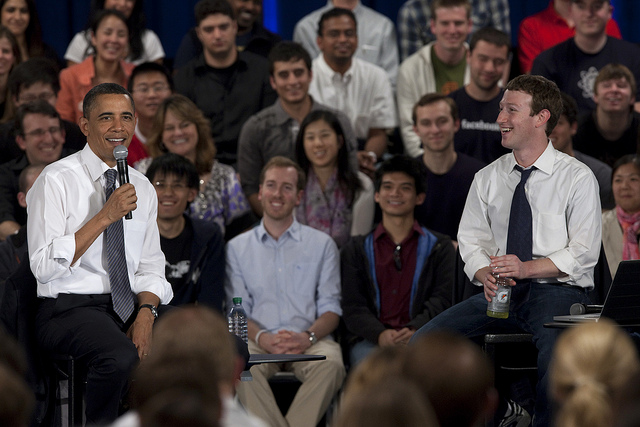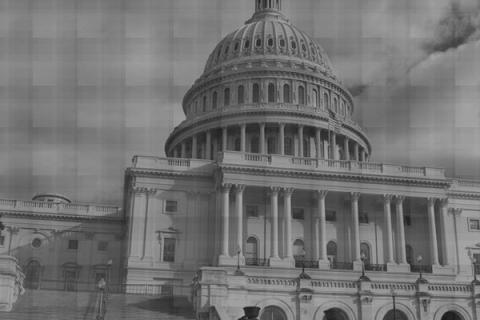
Silicon Valley is an invaluable Democratic asset. In 2012, Barack Obama crushed Mitt Romney by 42 percentage points in Santa Clara County and 71 points — yes, a 71 point margin — in the county of San Francisco. More importantly, Obama drew on Silicon Valley’s deep reservoir of wealth and programming talent. As Nate Silver reported last year, the Obama campaign picked up an overwhelming share of contributions from tech company employees — including more than 90 percent each from Google, Apple and Netflix. And Obama’s strong support among Valley tech whizzes undoubtedly contributed to his campaign’s superior information technology systems.
These remarkable figures were on my mind when I read George Packer’s latest piece for the New Yorker, “Change the World,” a cutting indictment of the tech industry’s politics and culture — in particular, of the class-segregation, corporate arrogance and income inequality that he says have come to characterize the Silicon Valley. The Valley, like any other major American industry, is simply “a group of powerful corporations and wealthy individuals with their own well-guarded interests,” Packer writes.
The article denounces “tech exceptionalism,” the notion that technology companies are superior to Big Pharma, Big Oil, or Wall Street. But they are different in at least one sense — the natural gas, pharmaceutical and financial industries all donated very heavily to Republicans in the 2012 elections, according to the Center for Responsive Politics, while tech companies donated almost exclusively to Obama. The tech sector clearly has a fundamentally different idea of how society should operate.
So what makes the Silicon Valley distinctive? How can the Valley’s aversion to government regulation, the influence of big corporations and the hugely uneven accumulation of wealth they have enabled, be squared with the tech industry’s unwavering devotion to the party of the 99 percent? Meanwhile, why has the GOP, supposedly the party of unfettered capitalism, faced such an emphatic rebuke from the most dynamic sector of the American economy?
Social issues are undoubtedly a key factor — the San Francisco Bay Area is, after all, famously supportive of gay rights and multiculturalism. This seems to be Packer’s favorite explanation for the Valley’s commitment to Democratic candidates. In a follow-up blog post to his article, he wrote, “Silicon Valley’s social liberalism runs so deep that the Republican party in its current version could never win more than a small number of votes there.” For example, Fred Wilson, a prominent venture capitalist who has invested in Twitter, Tumblr and Zynga, wrote on his blog last year: “The social views of the Republican party are more frightening to me than the economic views of the Democratic party. So I hold my nose and vote Democratic most of the time.”
Clearly, it is impossible to craft a theory of the Valley’s political leanings without reference to its social liberalism. But this explanation alone strikes me as incomplete. After all, the 2012 election was mostly about the economy. And in national elections with more culture war flashpoints, like 2000 and 2004, the Democratic margin of victory in the Silicon Valley was significantly smaller than in 2012, according to Silver’s data.
A more complete explanation would also take into account the ethos of the information technology industry itself. Tech companies are committed to profits, of course. But tech is distinguished from other industries by its lofty sense of purpose. When you talk to young Silicon Valley entrepreneurs, it’s clear that they want fame and fortune — but they also earnestly want to propel human progress, solve intractable problems and “change the world.” This conception of the tech industry, taken too far, can be utopian, naive or self-serving, as Packer richly illustrates in his piece. But this “change the world” idealism also represents a genuine sense of public mission, of commitment to the collective good, for which there is little room in the Romney-Ryan Republican party. In the age of multinational corporations, corporate buyouts and outsourcing, it might be the only type of public mission we can reasonably hope for our corporations to have.
Finally, the type of change wrought by the information revolution often cuts against the way Republicans think about community. The looser, more decentralized social arrangements fostered by social networks are anathema to many on the right. The New York Times’ Ross Douthat, for example, has lamented “the weakening of flesh-and-blood ties and the decline of traditional communal institutions” as a result of the ascent of virtual forms of community — “the sense of isolation that coexists with our technological mastery.” So it’s not only that the Silicon Valley revolutionaries want to “change the world” — it’s that they want to change it in a way that threatens to weaken traditional arrangements that many conservatives hold dear.
Silicon Valley’s politics do not fit neatly on the partisan spectrum. And they are not fixed — Santa Clara County supported Reagan in ‘80 and ‘84, before turning sharply to the left in the past twenty years. Further transformations are sure to come. After all, anything is possible in the Silicon Valley.
I invite you to follow me on Twitter or email me at jawillick (at) gmail (dot) com.
Image Source: El Mostrador via Creative Commons.
